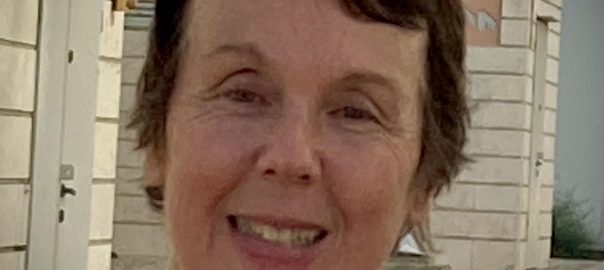
Why the Legislature Should Pass the Covid-19 Pandemic Response Study Commission Before the End of Session
My brother, Johnny, always put other people before himself. When it became clear that our 78-year-old mom could no longer live alone, he stepped up to become her caretaker. So when he had a crucial surgery during the early days of the pandemic, we were glad he was taking care of his needs. After a successful operation, his doctor recommended he do his rehab in a nursing home to get back on his feet as quickly as possible.
It was there that my brother caught Covid, and later died on a ventilator at the age of 65. There is not a day that goes by where I do not think about my brother, and wonder if his death could have been avoided. Yet four years later, I still don’t have these answers — because the State refuses to create an independent commission to review New York’s Covid response policies.
One of the saddest parts of our story is that it’s common. With 80,000 deaths in our state alone, including 15,000 people in nursing homes, Covid-19 impacted every New Yorker in some shape or form. Yet despite numerous questions about how our State responded to the pandemic, and the State’s nursing home order in particular, New York leaders have yet to convene an independent commission to review the state’s Covid response. In response to New Yorkers’ rightful questions about whether Covid deaths could have been prevented, Governor Hochul has instead hired a private consulting firm without subpoena powers to interview those involved in the pandemic response, access documents or work independently. In order to restore public trust, Governor Hochul and the State Legislature must immediately pass legislation creating the independent Pandemic Response Study Commission.
An honest and thorough review of New York’s response to Covid must be completely nonpartisan and structured to ensure it is completely shielded from political influence at every stage of the process. To achieve this, there must be outside experts with robust public health backgrounds on the commission to objectively drill down on how each pandemic policy decision impacted New Yorkers. Their findings will be the basis for our future public health policy, and should be based on the facts and their expertise — not political expediency.
In order to conduct the most thorough review possible, the commission needs full access to the state’s Covid-19 records and data. This will give the commission insight into what information our public officials used to guide their decisions. The commission must also have subpoena power to interview officials to get the clearest picture of how each policy decision was made.
Finally, New Yorkers must have a voice in the review process so the commission can hear how the State’s policies impacted people’s lives. The commission must hold public meetings and hearings to give New Yorkers the chance to provide their insight on the state’s response, as well input on how to strengthen pandemic policy moving forward. These public forums will also help instill the public’s trust in the commission, and be an important step towards rebuilding New Yorkers’ trust in the government’s handling of public health emergencies.
It’s been over four years since the first case of Covid-19 hit New York State. Yet our elected officials continue to avoid taking meaningful steps to understand what happened and ensure that the government does not repeat the same errors in future public health emergencies. Instead, our elected officials’ response to widespread suffering has been grounded in platitudes at best and political theater at worst. This is unacceptable, and underscores why an independent investigation into the decisions and actions that led to widespread loss of life must be conducted as soon as possible. New Yorkers deserve transparency, accountability, and a government that is working to prevent unnecessary tragedies in the future. The Pandemic Response Study Commission would signify that our government is truly committed to rebuilding public trust— and avoiding the same results next time.
Marlene Bandfield, Rockland County

